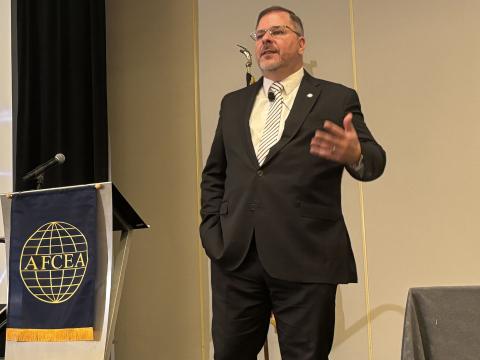Gates' Final Word Is That Defense CIO Duties Do Not Go to CYBERCOM
Even as he was saying his farewells, now-former Defense Secretary Robert Gates apparently had a change of heart about moving responsibility for the Pentagon’s computer networks from the Defense Department Chief Information Officer (CIO) and the Defense Information Systems Agency (DISA) into the newly established U.S. Cyber Command (CYBERCOM).
The decision was announced in one of Gates’ final memos which he signed undated, and which was posted on the Defense Department website after the 4th of July holiday.
Citing “significant policy, operational and practical concerns with shifting DISA to CYBERCOM,” Gates said it was no longer viable to consider moving responsibility for Networks Integration and Information (NII). Gates had tentatively agreed to the move in December 2010.
Instead, Gates last week asked acting Assistant Secretary of Defense for NII/CIO Teri M. Takai to transfer acquisition oversight for “major automated information systems” to Ashton Carter, Under Secretary of Defense for Acquisition, Technology and Logistics. Takai has been asked to “develop an implementation plan for the disestablishment of NII” by the end of this fiscal year, September 30th. The plan also calls for a smaller, more focused CIO office.
Takai had proposed the move in a February 11, 2011 report to Gates entitled “the Cost Assessment and Program Evaluation” (CAPE).
The shift is seen as part of a broader effort to consolidate, and make more efficient the Pentagon acquisition system.
In his memo, Gates also called upon Takai to establish “a stronger relationship and clearer delineation of responsibilities between the CIO, DISA and CYBERCOM.”
Last September, assistant secretary of Defense William Lynn told a Senate committee that he believed such a move would result in a strengthened CIO office at the Pentagon. Channeling responsibility for netcentricity and command and control systems is seen as one plank of Gates’ announced plans to cut as much as $100 billion dollars in Pentagon spending over the next five years.
So far, there has been no word from Gates’ successor, Leon Panetta, on whether the new secretary of defense supports Gates’ plan to shift purchasing responsibility for Defense Department networks.



Comments